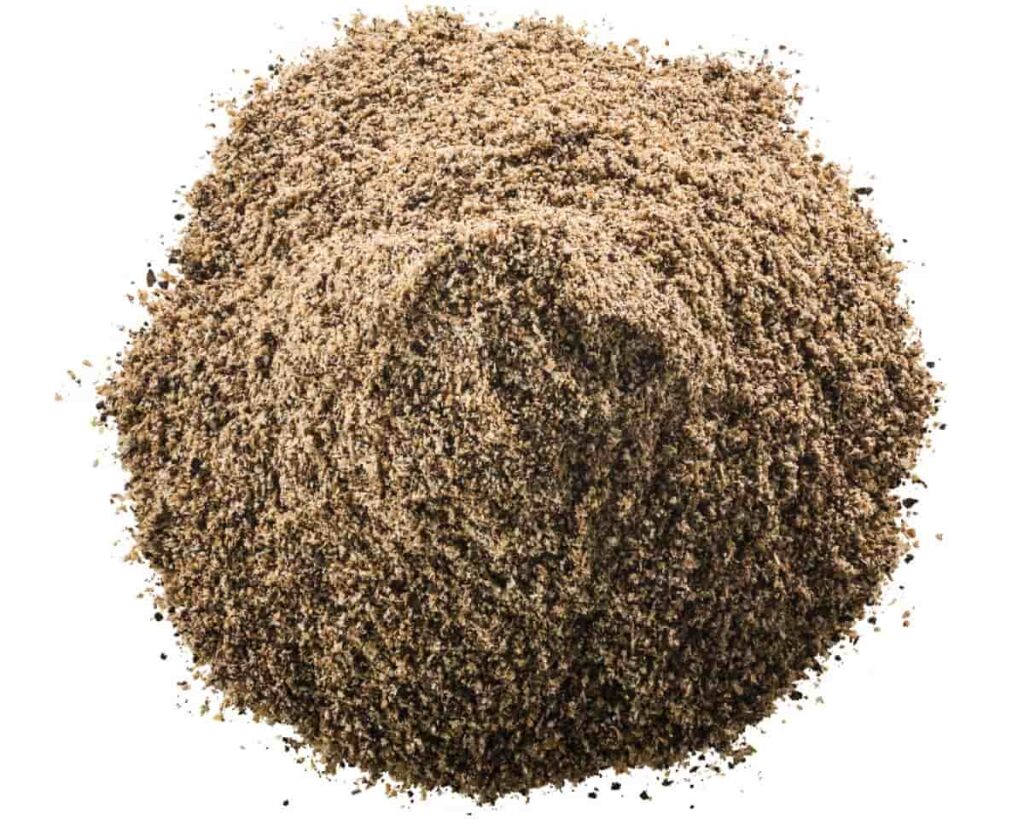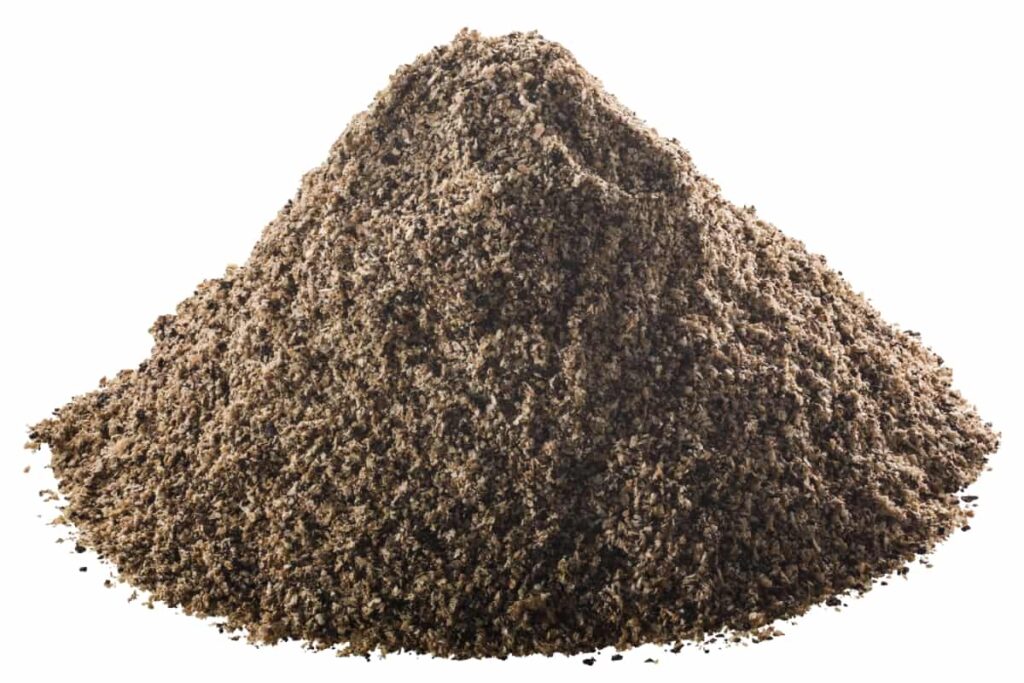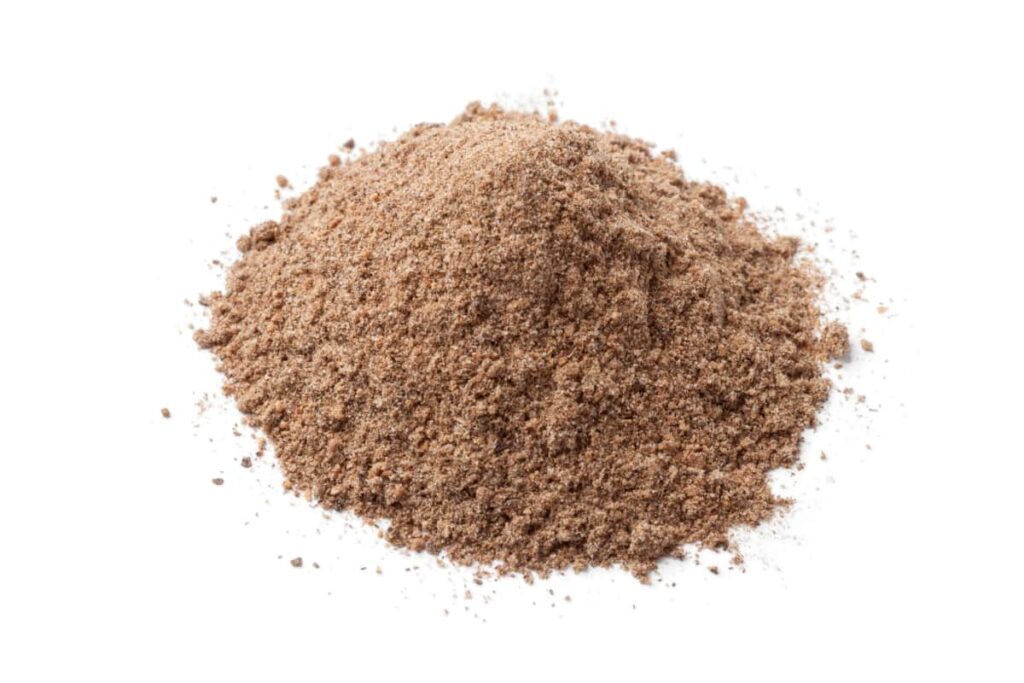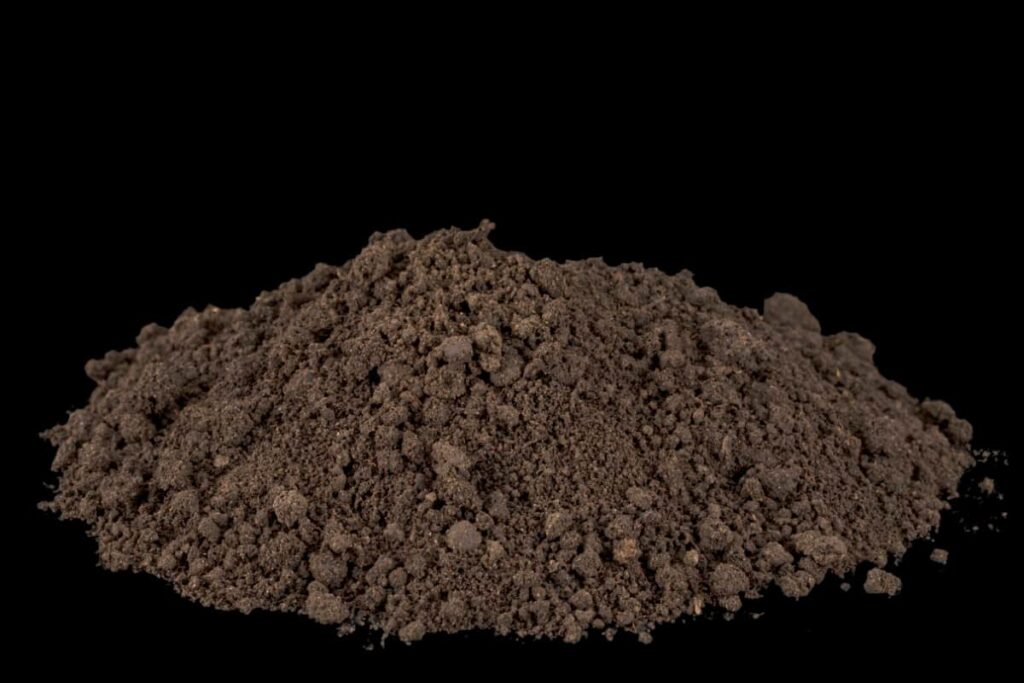Derived naturally from oil palm empty fruit bunches, Palm Bunch Ash is a 100% organic fertilizer that has gained recognition in the agricultural industry for its numerous benefits. This unique fertilizer is rich in potassium, making it a good choice for promoting plant growth and development. Palm Bunch Ash stands out for its rich potassium content, which is essential for plant nutrition and overall health. Additionally, it helps regulate soil pH levels, creating optimal conditions for crop growth.

Potassium Enrichment
Potassium enrichment is a key benefit of using Palm Bunch Ash fertilizer in your agricultural practices. This natural organic fertilizer contains high potassium levels, which is essential for plant growth. Potassium plays a major role in physiological processes within plants, such as enzyme activation, photosynthesis, and water regulation.
By enriching the soil with potassium from Palm Bunch Ash, you can enhance nutrient uptake by plants, leading to improved growth and yield. In addition, potassium helps plants resist diseases and stress factors like drought or pests. The balanced presence of this nutrient promotes strong root development and enhances flowering and fruiting stages.
pH Regulation
Palm Bunch Ash fertilizer plays a crucial role in pH regulation within the soil. Maintaining the right pH level is essential for optimal nutrient uptake by plants. When the soil’s pH is too high or too low, it can hinder plant growth and development. Palm Bunch Ash helps to neutralize acidic soils and balance out alkaline ones, creating an ideal environment for plant roots to thrive.
By regulating the pH levels effectively, this organic fertilizer ensures that essential nutrients are readily available to plants when needed. The unique ability of Palm Bunch Ash to adjust soil acidity makes it a valuable tool for enhancing crop productivity sustainably. Maintaining optimal pH levels is essential for nutrient availability and microbial activity in the soil, which ultimately promotes healthy plant growth.
Soil Structure Enhancement
Soil Structure enhancement allows for better water retention, ensuring that plants receive adequate hydration during dry periods. Moreover, Palm Bunch Ash works to promote better aeration within the soil, which is crucial for root development and nutrient absorption by plants. The improved soil structure also reduces compaction, allowing roots to penetrate deeper into the ground and access essential nutrients.
In addition, this enhanced soil structure creates an optimal environment for beneficial microorganisms to thrive. These microorganisms play a vital role in releasing nutrients that are essential for plant growth.
Organic Matter Addition
Palm Bunch Ash fertilizer is a natural source of organic matter that can significantly enhance soil health and fertility. By adding organic matter to the soil, Palm Bunch Ash helps improve soil structure, water retention capacity, and nutrient availability for plants. This leads to healthier plant growth and higher yields in the long run. The presence of organic matter also promotes beneficial microbial activity in the soil and it helps in nutrient cycling and overall plant health.
In case you missed it: Nourish Naturally: 10 Best Homemade Fertilizers for Meyer Lemon Tree

Cost-Effectiveness
This organic fertilizer is not only effective but also highly cost-efficient, making it a budget-friendly option for farmers of all scales. By using Palm Bunch Ash Fertilizer, you can significantly reduce your overall fertilization costs while still achieving impressive growth and yield results. Its affordability makes it accessible to smallholder farmers as well as larger commercial operations, ensuring that all growers can benefit from its cost-effective properties. In addition to being budget-friendly, this natural fertilizer offers numerous benefits that contribute to long-term soil health and crop productivity.
Sustainability
Using Palm Bunch Ash Fertilizer promotes sustainability by utilizing organic waste from oil palm empty fruit bunches, reducing environmental impact. By recycling these by-products into a beneficial fertilizer, we are contributing to a more sustainable agricultural system. This method of repurposing waste benefits the soil and helps reduce the overall carbon footprint.
Choosing Palm Chaff Ash as a fertilizer option aligns with eco-friendly practices that prioritize long-term environmental health. The sustainability aspect of using this organic fertilizer extends beyond just crop production; it supports biodiversity by creating healthier soil ecosystems.
Yield Enhancement
By providing essential nutrients like potassium, this organic fertilizer promotes healthy growth and development in plants. The rich nutrient content in Palm Bunch Ash helps improve overall plant health, leading to increased productivity and higher yields at harvest time. Additionally, the pH regulation properties of Palm Bunch Ash create optimal growing conditions for plants.
In case you missed it: 10 Homemade Fertilizers for Money Plant: Natural Ways to Nourish Potted Golden Pothos

This ensures that crops can efficiently absorb nutrients from the soil, maximizing their growth potential and ultimately resulting in a greater yield. Farmers who incorporate Palm Bunch Ash into their fertilization practices often see significant improvements in crop output compared to traditional synthetic fertilizers.
Environmental Benefits
By opting for this organic fertilizer derived from oil palm empty fruit bunches, you are not only nourishing your plants but also contributing to a more sustainable ecosystem. The environmental advantage of Palm Bunch Ash is its ability to reduce the reliance on chemical fertilizers that can harm the environment.
This natural alternative helps in maintaining soil health and fertility without introducing harmful substances into the ground. Furthermore, by choosing Palm Bunch Ash Fertilizer, you are promoting recycling within the agricultural industry. Instead of letting these by-products go to waste, they are being repurposed as a valuable resource that aids in plant growth and development.
Disease Resistance
Palm Bunch Ash Fertilizer is known for its ability to enhance the plant’s natural defense mechanisms against various diseases. By strengthening the plant’s immune system, this organic fertilizer helps crops ward off infections and infestations more effectively. Disease resistance is essential for ensuring that your plants stay healthy throughout their growth cycle, ultimately leading to higher yields. By reducing the need for chemical pesticides that may harm beneficial insects and pollinators in the ecosystem, you can also improve yields.
Easy Application
Palm Bunch Ash fertilizer ensures that farmers can easily incorporate this organic solution into their farming practices without any hassle. Whether it’s through broadcasting, side dressing, or mixing with other fertilizers, the versatility of Palm Bunch Ash makes it convenient for growers to adopt and integrate seamlessly into their existing agricultural routines.
In case you missed it: 11 Best Homemade Fertilizers for Legumes: Discover Organic Fertilizer Recipes

Palm Bunch Ash offers farmers a budget-friendly option that supports long-term soil fertility without harming the environment. Its importance lies in its ability to enrich the soil with essential nutrients like potassium, regulate pH levels, enhance soil structure, and add vital organic matter. The disease resistance provided by Palm Bunch Ash further underscores its importance in promoting healthy plant growth.
- Irrigation and Water Management in Pineapple Farming
- Blossom to Harvest: Mastering Flowering and Pollination in Papaya Farming
- Pig Fattening Essentials: From Selection to Sale for Beginners
- Raising Wagyu Cattle: A Complete Guide for Premium Beef Production
- Soil Types and Their Water Holding Capacity
- Optimizing Irrigation Schedules for Coconut Groves for Enhanced Yield
- Espresso Your Garden: Coffee Grounds for Healthier Acid-Loving Plants
- The Best Soil Mix for Snake Plants: How to Mix Your Own Snake Plant Soil
- Green Thumb Success: Expert Tips for Cultivating Greenhouse Beans All Year Round
